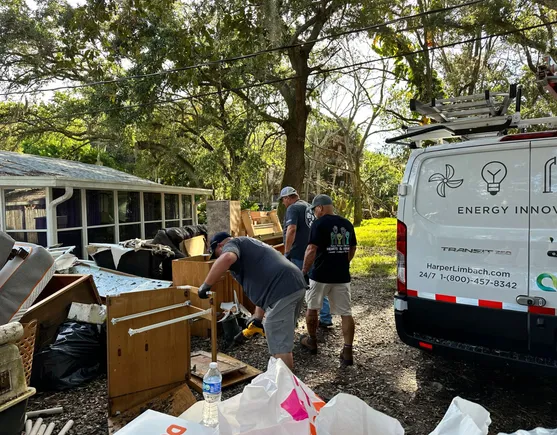Many inaccurate archetypes of Latinas exist; along with the images of someone “feisty” or fetishized, there’s also the “strong and hypercompetent” stereotype. Writing about Latina representation in media, Michelle Young said characters such as Amy Santiago from “Brooklyn 99” can serve as “the antithesis to anti-immigrant rhetoric, showcasing the intellect and strong work ethic Latinas often bring to the U.S.”
While Young values this kind of representation, she wrote, “the work we take on is not the only thing that makes us strong.” She also emphasized that Latinas are not a monolith.
That these nuances exist are something Arivee Vargas, an HR professional and former lawyer, seeks to help non-Latinx people understand. Prior to becoming a life and career coach, she said, she didn’t want to “rock the boat.” This mentality went along with other beliefs, such as: “I’m so grateful to be here. I love this team. I love this company. I’m doing great work.”
Arivee Vargas
Permission granted by Arivee Vargas
This school of thought exists, she said, “because many of us do come from humble backgrounds and beginnings.”
Beyond shared experiences as immigrants, Vargas also said, “a lot of Latino culture is rooted in that, like, gratitude. Obviously, there’s a religious component to that… It’s very much: ‘Be happy for what you have, because you know what it’s like not to have.’”
The importance of focusing on Latinas, now more than ever
LeanIn.Org and McKinsey and Co. released their 10th annual Women in the Workplace report this year, which concluded that race and gender intersections make the work life of women of color more difficult.
Overall, McKinsey said companies’ commitments to gender and racial diversity are in decline; researchers affirmed that “progress is surprisingly fragile, especially for women of color, who continue to be underrepresented at every level and who view gender and race as obstacles to their advancement.”
In its reports, McKinsey talked at length about the “broken rung” of advancement for women. Because of this, “men significantly outnumber women at the manager level, making it incredibly difficult for companies to support sustained progress at more senior levels,” researchers said. Notably, they continued, “this phenomenon is even worse for women of color,” who make up just 7% of C-suite positions — up from 3% in 2017.
Per the most recent report: For every 100 men promoted, only 81 women are promoted. More specifically, 89 White women are promoted for every 100 men promoted — only 65 Latinas are promoted for every 100 men promoted. That metric is one of the worst years for the “broken rung” phenomenon since 2018.
Bridging the gap is necessary
Big picture, companies may be investing less in women at work.
A lack of investment in people of color — especially as that POC workforce increases — can leave Latina workers by the wayside. This may be exacerbated by a systemic fear of speaking up, according to Vargas.
“For people who identify as Latinx or Latina, so much of what they struggle with is the desire to want more, but they pull back because they ‘should’ be so grateful for everything that they have,” Vargas said. “Instead of going for the thing we want to go for, we quiet that, and we play small.”
Encouraging quiet people to speak up in meetings can help, Vargas said. If managers pick up on people having ideas that they’re holding back, they can pass the mic. Alternatively, they can escalate employees’ ideas, giving credt; that can give a quieter person a buffer and space that they can now take up, Vargas said.
On a large scale, HR can seek to fix the broken rungs of advancement. “Be clear and transparent about the pathway for career development and advancement for everybody,” Vargas said. “Because when it’s arbitrary, people of color bear the brunt of that.”
Arbitrary metrics for advancement allow people of color “to slip through the cracks,” Vargas said.
A psychologically safe environment is key, too. “The research is so clear on this. The best, high-performing teams are the psychologically safe teams. Teams where I can say, ‘I messed up.’ Teams where I can just say what I think. Teams that know how to grow and learn together and make mistakes together,” Vargas said.
“Especially for for Latinas, the Latino population and the Latinx population,” she said, “you’re not going to get us to feel like we belong and we’re included unless we already are in a space that feels psychologically safe.”






Leave a Reply